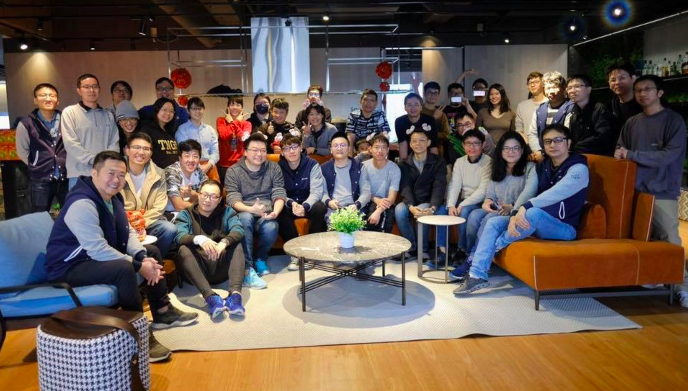
mlytics team
In 2008, Ryan Chin, a Singaporian, and Reggie Yam, who hails from Hong Kong, founded a B2B cybersecurity company Nexusguard in Taiwan.
In 2017, with so many cloud incidents, such as website outages due to cloud failure, including the AWS outage, Chin saw a huge opportunity and decided to start a new venture to tackle this.
Chin immediately stepped down as Nexusguard CEO and invited Yam to start a venture, with the funding support from an angel investor.
An AI solution
Headquartered in Taipei, mlytics is an online platform/marketplace, on which businesses can subscribe to multiple top-tier CDNs or content delivery networks (a solution to boost website performance for their website). mlytics’s Machine Learning-trained Artificial Intelligent solution will monitor the internet and automatically route the website traffic to the best-performing CDN. This can boost the performance of a website and avoid outages.
“It would be hard to overstate the importance of avoiding downtime. Every minute your website is inaccessible represents both a financial and customer relations hit. The cumulative effect can lead to catastrophic consequences for e-commerce sites, in particular,” says Chin, CEO, mlytics. “We are trying to address this using our SaaS product.”
Also Read: 6 tried-and-tested branding tips for your startup
In other words, mlytics enables enterprises to buy and install CDN for their website, as opposed to signing up for an account individually via a different portal. All the user has to do is add his or her website to the platform. Similar to Google Tag Manager, once an initial installation is done, they can install any CDNs on their website without having to go through the technical hassle again.
“Traditionally, if you are using only one CDN and if it is underperforming or malfunctioning, your website will stop working,” Chin explains. “But with multi CDNs, along with our AI Load Balancing feature, the system can auto-detect such situation and redirect all the traffic to another CDN.”
For example, if a news portal is using Cloudflare, and suddenly Cloudflare is down without notice, the whole site goes down. Now, if the site has Cloudflare, CloudFront, and Alibaba Cloud CDNs installed, even if Cloudflare is down, the mlytics system can redirect all the traffic to CloudFront or Alibaba Cloud depending on which performs the best.
If simplified further using an analogy, let’s say you’re an e-commerce company located in the US, with customers from around the world. If a US customer places an order, the shipping won’t take too long since it’s domestic. Now, if a customer from Japan places an order, shipping will take longer since you’re shipping to Japan.
To overcome this, hiring a shipping company and using its shipping centre to preload products in Asia can vastly decrease the time of shipping.
“This is how CDN works. You have CDN PoPs (point of presence) at some of the essential locations acting as a shipping centre to deliver the website at a faster speed,” he explained.
Now, let’s say the company you hired for shipping isn’t working for the day without notice, and if a second shipping company isn’t planned, it will delay the whole shipping schedule.
“This is what happens when you use just one CDN and it fails without proper failover planning. If you have a second shipping company (CDN) ready, you can switch the operation over to assure uninterrupted operations. mlytics is this company that helps you hire multiple shipping companies (CDN) and helps you decide which shipping company to use depending on where your customer is located in,” Chin elucidated.
The firm works with multiple top-tier CDN companies, including Alibaba Cloud, Akamai, CDNetworks, Cloudflare, CloudFront (AWS), Imperva, and TencendCloud.
Expanding to Europe
Chin claims mlytics has been “doing pretty well” lately in the Southeast Asia region, and it now aims to expand to Europe in 2020. Its potential customers are medium-sized businesses in the e-commerce, multi-media (video, streaming, news), finance, and gaming.
The company has already bagged some clients — Aurora, an Asian IT solution company; DaAi, an Asian Buddhist TV station company; CloudMile, a Taiwanese firm focusing on AI solution.
The SaaS model means clients can subscribe to the service by paying a monthly fee, and cancel whenever they like without contract and restrictions. The firm also has an enterprise-grade solution, which is customised depending on the customer’s requirements.
mlytics has a staff strength of 50 people, mostly located in Taipei.
Also Read: Ready to spread your wings? 4 ways to tell your startup should
The entrepreneur-duo has extensive experience in building a company and had clear innovative visions, goals, and execution plans on how to address the existing CDN market pain point and weaknesses. As such, they planned to need very minimum capital to get the business off the ground, and manage to get mlytics off the ground (ROI and profitable) from a single angel investor.
Chin started his career as a network engineer. He had worked in some of the biggest network/telecom companies such as Siemens and AT&T. Yam started his career as an IT and network security specialist in Hong Kong and worked his way up to CIO in Nexusguard in seven years.
Lack of trust a challenge
In Chin’s opinion, B2B companies have been constrained by a lack of innovative solutions for the modern world internet delivery requirement. CDNs came into existence in the late 1990s as a means for alleviating the performance bottlenecks of the internet, and nothing much has changed since then.
“The challenge is how to disrupt an industry that has been the same for two decades, and convince businesses to make the shift,” he said. “We’re overcoming it with the right product, but we’re missing that extra punch due to the lack of credibility, social proof, and trust, which is extremely important for a SaaS business model especially in Europe and the US.”
The post Taiwanese SaaS startup mlytics ensures your website never faces internet outage due to cloud failure appeared first on e27.